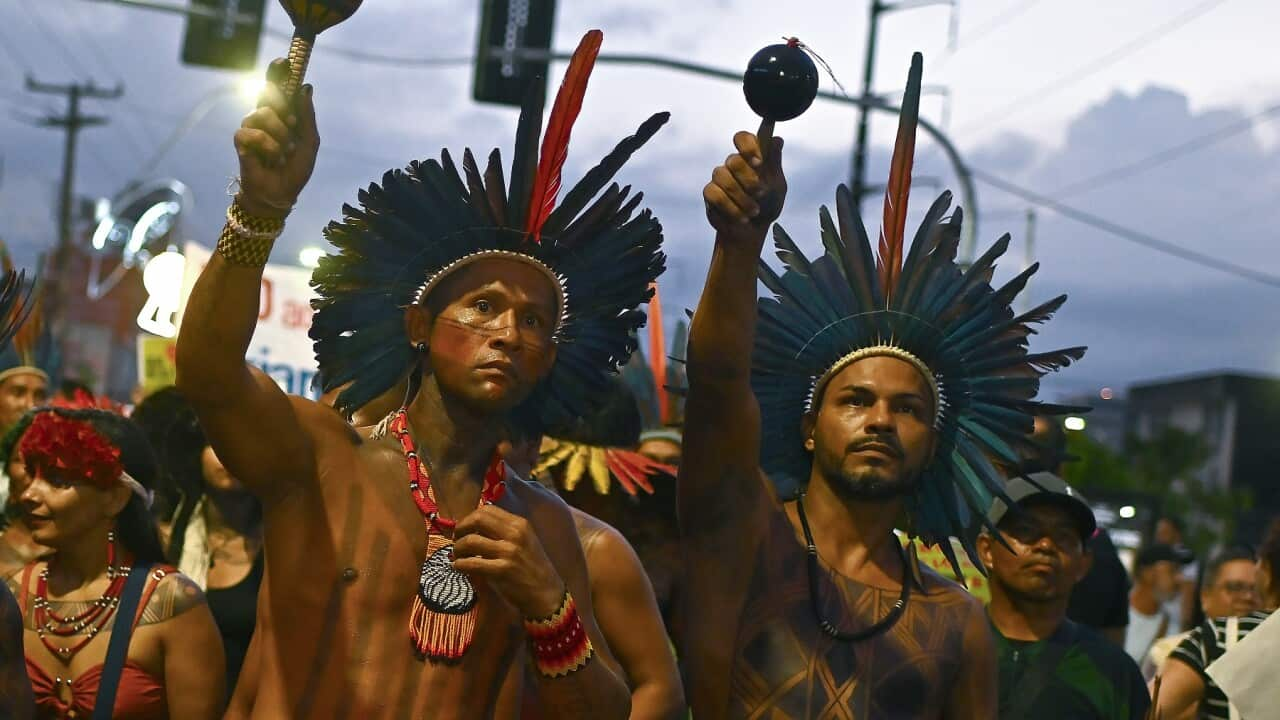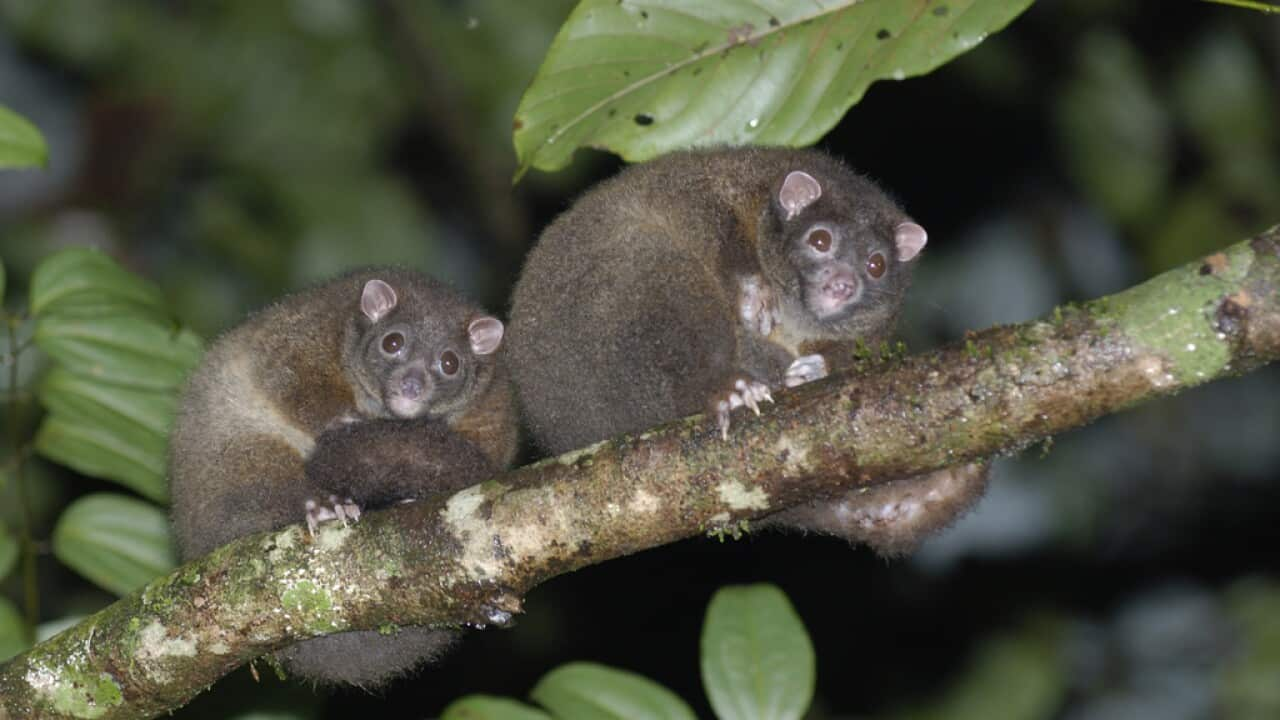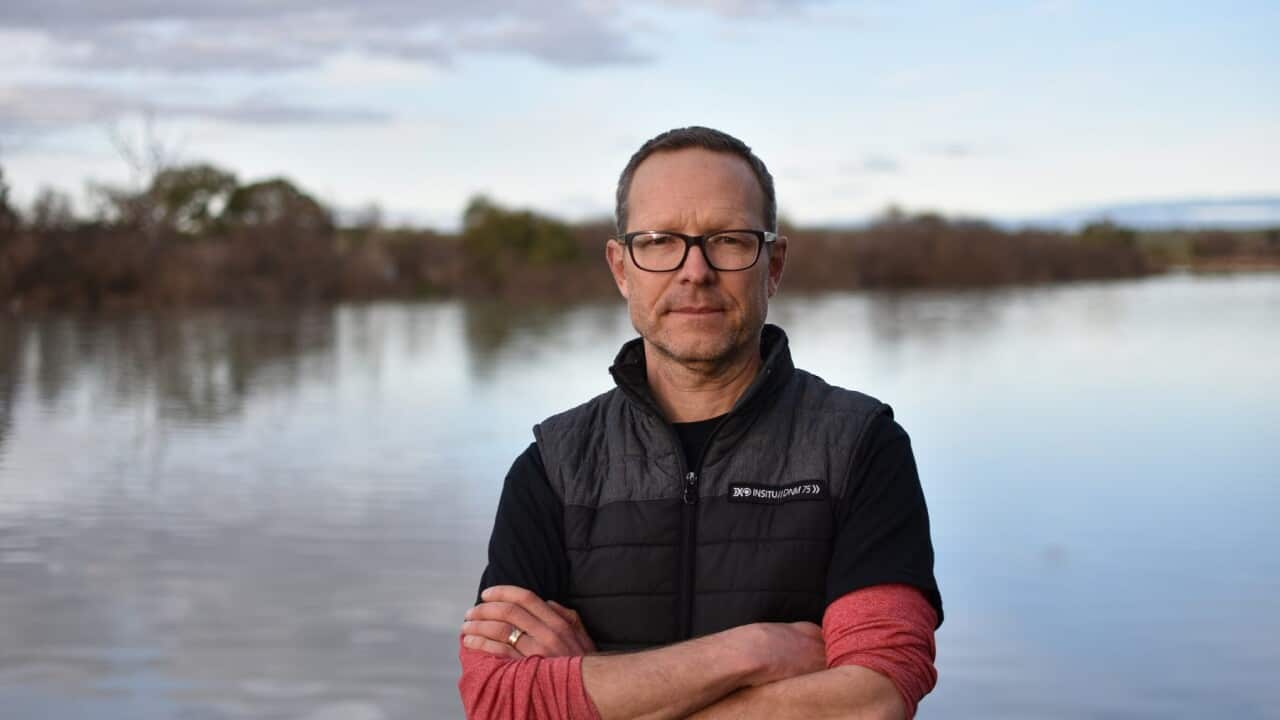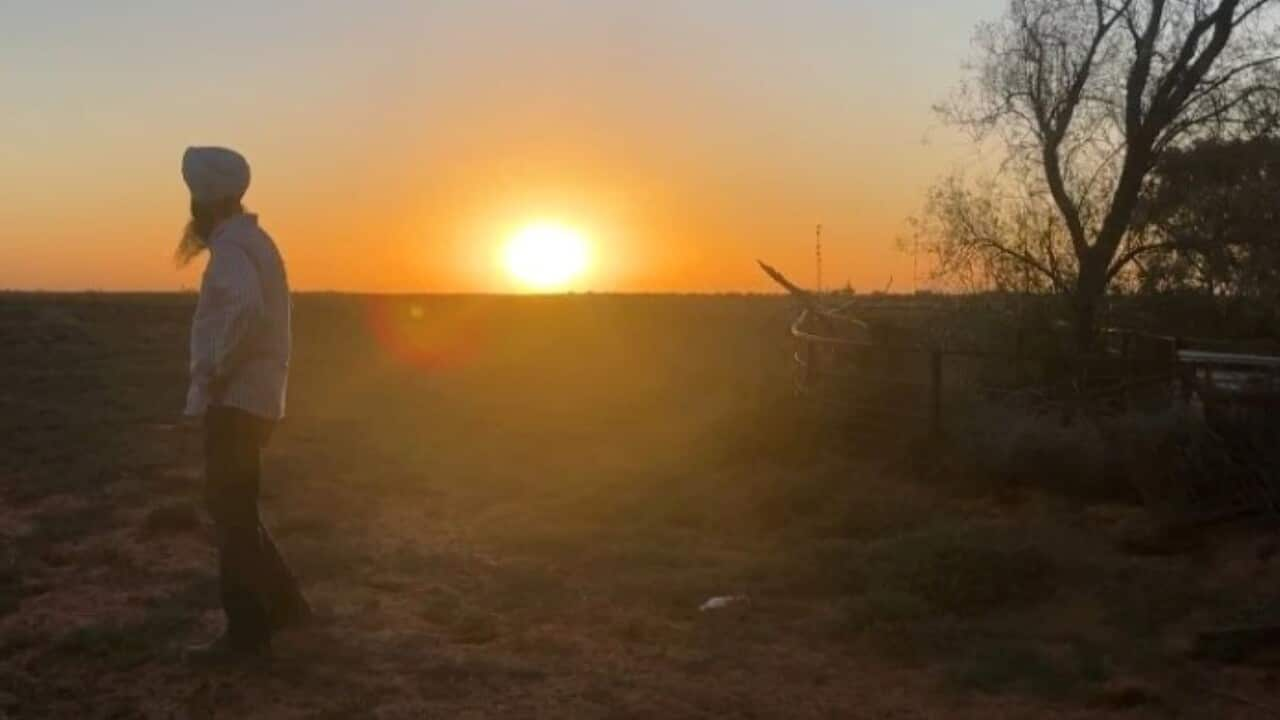Listen to Australian and world news, and follow trending topics with SBS News Podcasts.
TRANSCRIPT
“I am going to talk to you, so that you think and listen, so that you have ears and feelings, so that you think about the forests, about ways in which new generations can have air to breathe. I am sending a message to all of you so that you can listen and take care of the earth, of the forest, so that you can have lives and there is no death.”
Leader of Brazil's Indigenous Kayapo people, Raoni Metuktire has been fighting to protect his homeland in the Amazon for decades.
After years spent traveling the world to advocate for Indigenous land protection, Chief Metuktire is now speaking to world leaders in the Amazonian city of Belem.
With the COP30 Climate Summit underway in Brazil, the 93-year-old is urging his own government to empower Indigenous peoples to protect the Amazon.
“We are here to talk about indigenous rights and to ask, speak, shout, so that we can be respected by you and so that we can live in peace and continue living. That is why I am here, I did not come for any other reason (to COP30).”
Chief Metuktire is one of dozens of Indigenous leaders participating in the summit, with the key demand of having more say in how forests are managed worldwide.
With plans to pave a highway through the forest and news that a license has been granted to explore for offshore oil near the mouth of the Amazon River, he is urging President Lula da Silva to give legal protections to tribal lands.
“I had spoken to Lula when we met before he took office and told him that it was necessary to demarcate indigenous lands so that my people, my relatives, could finally have their rightful lands. When he arrived at the Piaracu Village, I asked him the same thing and asked when these demarcations would take place. I had seen that in the region they had started clearing the demarcated areas. Demarcation is very important for protecting the lands.”
Despite controversy over the decision to host COP30 in the Amazon, Brazil has focused on pursuing their Tropical Forest Forever Facility.
According to the official website, the initiative aims to compensate countries for preserving tropical forests, with 20 per cent of funds reserved for Indigenous peoples.
On day one of the summit, $5.5 billion was pledged, still far short of the $25 billion target set by Brazil.
German Chancellor Friedrich Merz says Germany is on board with the initiative.
“Germany is willing to contribute to this initiative and we will contribute with a considerable amount of money. We have to do the final decisions in Germany."
At COP28 in the United Arab Emirates, the world agreed to transition away from fossil fuels.
At COP29 in Azerbaijan, that pledge was largely ignored and fossil fuel lobbyists outnumbered the delegations of almost every country at the conference.
Despite a push from some fossil-fuel reliant economies to remove renewable transitions from the agenda, COP President Andre Correa do Lago says this needs to be a COP of action, not just ideas.
"Therefore, this is a COP of implementation. I hope it will be remembered as a COP of adaptation, a COP that will advance the integration of climate, the economy, activities, job creation, and above all, a COP that will listen to and believe in science. And in that sense, thank you, president, for finding the ideal formula to define this COP, which is the COP of truth."
As delegates enter discussions about what kind of commitments they'll make to reduce emissions, the lack of any official US delegates is likely to weaken potential agreements.
Despite the Trump administration's opposition to climate action, California Governor Gavin Newsom is among a group of US governors and mayors attending as part of an alternative US delegation.
Speaking to delegates in Belem, he says the position of the Trump administration is not reflective of all Americans.
“The United States of America is dumb as we want to be on this topic. But the state of California is not. And so we are going to assert ourselves. We're going lean in. And we are to compete in this space. But we can't do that without all of you. And this is how I'll end, with humility and grace and understanding that we need to build partnerships and we need to build on collaboration."













